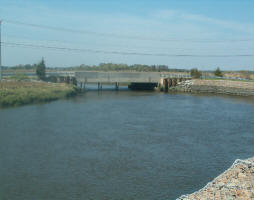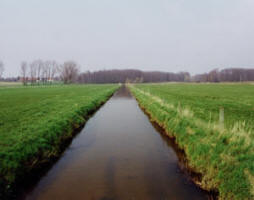- Regional water observation mechanism
- Regional Cooperation Assessment
- Water Quality Monitoring (JP)
- Water scarcity and drought (JP)
- Groundwater (JP)
- Waste water reuse (JP)
- Shared Water Resources Management (JP)
- Linking rural development and water management (JP)
- Waste management
- Water institutions
- Climate Change
- Floods
- Desalination
- Right to Water
- Irrigation
- Satellite data
- Water reports & data
- Hydrology
- Sanitation
- Gender and IWRM
- ArabWAYS
- Non-Revenue Water
- Virtual Water & Water Footprint
- WANA Water Panel
- Water Demand
- Water Governance
- Water Pricing
- Water accounts
- Water nexus Energy
- Geosciences
- Rural Management
 Hydro-hegemony, social adaptive capacity, politics, and international relations
Hydro-hegemony, social adaptive capacity, politics, and international relations
| Released | 09/12/2010 |
|---|
5. Turton, A.R. 1999. Water and state sovereignty: The hydropolitical challenge for states in arid regions.
6. Turton, A.R. 1999. Sea of sand, land of water: A synopsis of some strategic developmental issues confronting the Okavango Delta.
7. Turton, A.R. 1999. Southern African hydropolitics: development trajectories of Zambezi basin states and South Africa.
8. Turton, A.R. 1999. Monopolization of access to a critical natural resource: The case of water in South Africa.
9. Turton, A.R. 1999. Water scarcity and social adaptive capacity: Towards an understanding of the social dynamics of managing water scarcity in developing countries.
12. Kibaroglu, A. Prospects for Cooperation in the Euphrates - Tigris River Basin.
15. Allan, J.A. 1999. Israel and water in the framework of the Arab-Israeli conflict.
17. Turton, A.R. and Ohlsson, L. 1999. Water scarcity and social stability: towards a deeper understanding of key concepts needed to manage water scarcity in developing countries.
18. Allan, J.A. 1999. Middle Eastern hydropolitics: interpreting constructed knowledge. A review article.
19. Leif Ohlsson, L. and Turton A.R., 1999. The turning of a screw: social resource scarcity as a bottle-neck in adaptation to water scarcity.
20. Allan, J.A. 1999, The Nile Basin: evolving approaches to Nile waters management.
21. Turton A.R., 1999, Water and social stability: the southern African dilemma.
22. Allan, J.A. 1999. Water in international systems: a risk society analysis of regional problemsheds & global hydrologies.
23. Mohieldeen, Yasir, 1999, Responses to water scarcity: social adaptive capacity and the role of environmental information. A case study from Ta'iz, Yemen.
27. Kunigk, Emmanuelle, 1998/99, Policy transformation and implementation in the water sector in Lebanon: the role of politics.
28. Wegerich, Kai, 2001, Not a simple path. A sustainable future for Central Asia
31. Jägerskog, Anders, 2001, The Jordan river basin: explaining interstate water co-operation through regime theory
41. Jägerskog, Anders, 2002, The sanctioned discourse - A crucial factor for understanding water policy in the Jordan River Basin.
43. C. A Sullivan, J.R Meigh & T.S Fediw, 2002, Derivation and Testing of the Water Poverty Index Phase 1- Final Report May 2002 (DFID) Accessing this file might take long time. Please save it to your disk first
44. Jayne Millar, 2002, The ability of the Maldives to cope with freshwater scarcity via the adaptive capacity of its political economy
52. Fischhendler, Itay , 2003, Can basin management be successfully ignored: the case of the US-Canada transboundary water
61. Jägerskog, Anders, 2003, Why states cooperate over shared water: The water negotiations in the Jordan River Basin
67. Jeroen Warner, 2004, Plugging the GAP. Working with Buzan: the Ilisu Dam as a security issue
70. Zeitoun, M. 2005. Hydro-hegemony theory
71. Daoudy, M. 2005. Turkey and the region: testing the links between power asymmetry and hydro-hegemony
72. Selby, J., 2005. The limits of realism in water conflict analysis
73. Cascao, A. 2005. The Nile Basin
74. Greco, F. 2005. The securitization of the Disi aquifer: a silent conflict between Jordan and Saudi Arabia
75. Philips, D. J. H., Attilli, S, McCaffrey, S. and Murray, J. 2005 Water and the Jordan River co-riparians: from zero-sum to positive sum game
76. Attili, S. 2005 Israel's hydro-hegemony
77. Turton, A. R. 2005. Hydro-hegemony in the context of the South African Cold War experience
78. Heyns, P. 2005 Managing a hydro-power impasse on the Kunene River
79. Allan, J.A. 2007. Third International Workshop on Hydro-Hegemony: Introductory orientation
80. Brouma A.D. 2007. Hydro Hydro-Hegemony across the division line: tales from Cyprus
81. Carles A, 2007. The Egyptian hydro-hegemony
82. Cascão A.E. 2007. Resistance and counter-hegemony in transboundary river basins
83. Cascão A.E. 2007. Resisting Hegemony on the Nile
84. Daoudy M, 2007. Conceptualizing and Disentangling Cooperation
85. Davidsen, P.A. 2007. Hydrosolidarity and the power of being good
86. Dombrowsky I, 2007. Hydrosolidarity and the power of being good
87. Saleh, S.M.K. 2007. Sudan's 'Midstream Doctrine'
88. Greco, F, 2007. The HydroHegemony discussion Group on the internet
89. Horta, K. 2007. Resisting Hydro Hegemony in Southern Africa: The Lesotho Highlands Water Project
90. Kistin, E. 2007. Critiquing Cooperation:The Dynamic Effects of Water Regimes
91. Kistin, E. & Phillips, D.J.H. 2007. A Framework for Cooperation on International Agreements Concerning Trans-boundary Water Resources
92. Messerschmid, C. 2007. Hegemony & Counter-Hegemony over Shared Aquifers - The Palestinian Experience
93. Mirumachi, N. 2007. Introducing Transboundary Waters Interaction NexuS(TWINS): Model of Interaction Dynamics in Transboundary Waters
94. Selby, J. 2007. Beyond Hydro-Hegemony: Gramsci, the National, and the Trans-National
95. Warner, J. 2007. Hegemony and Power
96. Woodhouse, M. 2007. Hydro-hegemony - A practical approach
97. Zeitoun,M. 2007. Hydro-hegemony: Towards a Radical View of Transboundary Hydropolitics
98. Zeitoun,M. 2007. Practical agenda of hydro-hegemony
 you are not logged in
you are not logged in





